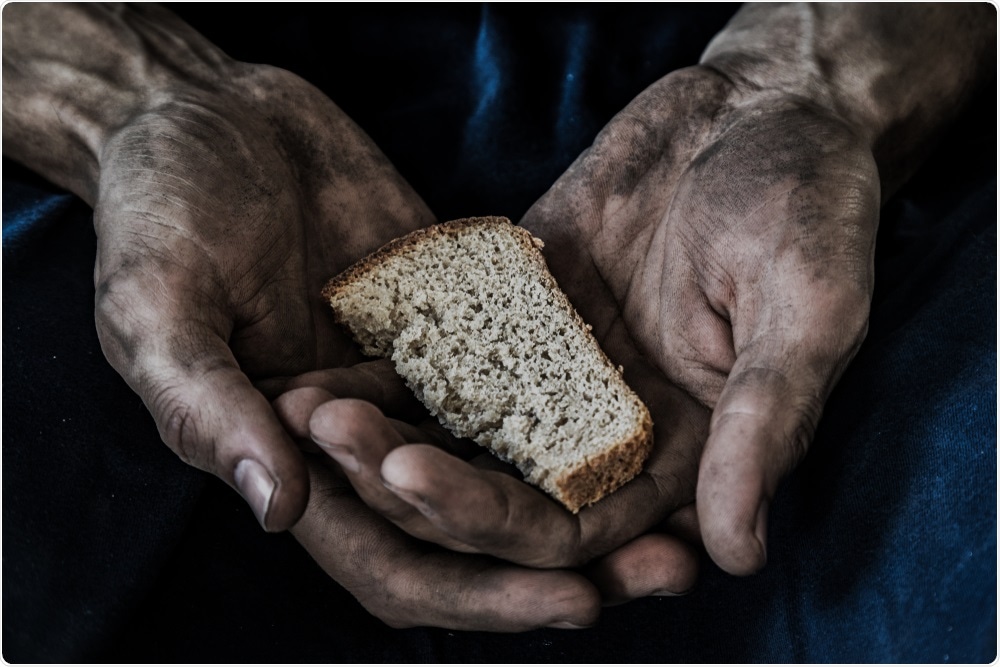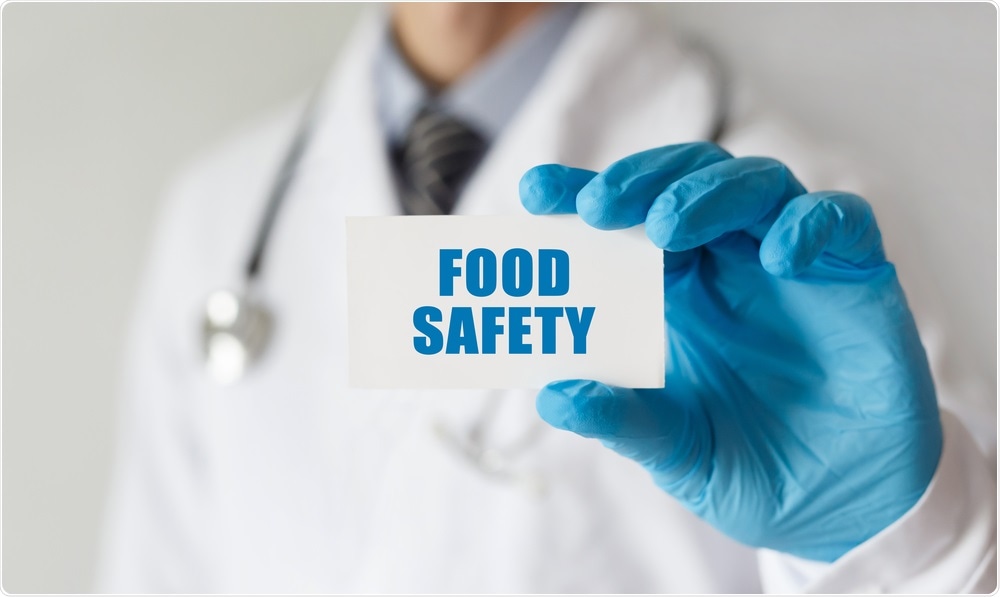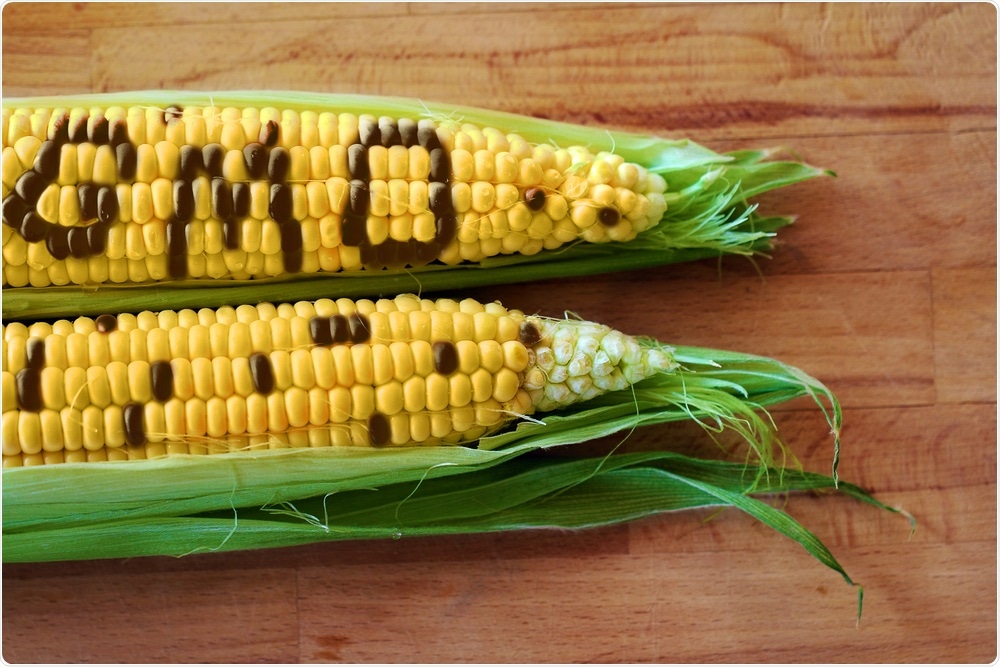To celebrate World Food Safety Day, AZoLifeSciences interviewed Dr. Markus Lipp from the Food and Agriculture Organization of the United Nations (FAO) about the theme for this year which is 'safe food now for a healthy tomorrow'.
Please could you introduce yourself and tell us about your role within the Food and Agriculture Organization (FAO)?
My name is Markus Lipp, I am the Senior Food Safety Officer in the Food Systems and Food Safety Division of the Food and Agriculture Organization of the United Nations (FAO). In my current position, I coordinate all the food safety activities within the division.
Our work can maybe most easily be described as part of two of FAO’s core activities: providing global public goods, and strengthening national governance and technical capabilities. We provide global public goods through the provision of food safety scientific advice to Codex Alimentarius and others through convening of expert meetings and committees. These expert meetings and committees are well established and often held jointly with the World Health Organization (WHO).
Just to illustrate, the Joint FAO/WHO Expert Committee on Food Additives, JECFA, has been meeting since 1956 to provide scientific advice on the safety of food additives, contaminants in foods, and residues of veterinary drugs in foods. All meeting outcome documents are made publicly available.
To help countries strengthen their national food control systems, value chains, and governance structure, we engage directly with the individual countries or with multiple countries in the form of regional projects, to work directly with the beneficiaries. This work is multi-faceted, and its scope is directly adapted to the specific national or regional needs and interests. No two projects are alike and FAO’s strength is fully leveraged here.
For most of these projects, FAO can deploy not only its deep pool of technical knowledge at its headquarters and regional offices but also its vast network of country offices to ensure that the knowledge is completely tailored to the needs of the countries and at the local level. You can learn all about work here in food safety on our webpage here: http://www.fao.org/food-safety/en/
.jpg)
One of the main goals at FAO is ‘zero hunger’. Sadly, it is estimated that nearly 690 million people currently go hungry. Why is this, and what action needs to be taken to provide food and relief to the most at-risk populations?
Hunger is a complex issue and a series of factors contribute to it: political instability, social unrest, war, natural disasters are some of the main causes of hunger. These events disrupt and or destroy much of the food supply chain and humanitarian aid is one of the few immediate tools available to prevent hunger and suffering.
In addition, outside such major disruptive events, there are numerous other issues that can cause hunger. To have enough food, humans need physical and economic access to food at all times. Many may live in areas where there simply is not sufficient food available for purchase; this includes the so-called food deserts in high-income countries.
Furthermore, many may not have the economic access to food, even if food is available for purchase. The reduction of hunger requires a multidimensional approach.
In this regard, FAO stated in the 2019 edition of ‘The State of Food Security and Nutrition in the World’: “Economic slowdowns or downturns disproportionally undermine food security and nutrition where inequalities are greater. Income inequality increases the likelihood of severe food insecurity, and this effect is 20 percent higher for low-income countries compared with middle-income countries. Income and wealth inequalities are also closely associated with undernutrition, while more complex inequality patterns are associated with obesity.
To safeguard food security and nutrition, it is critical to already have in place economic and social policies to counteract the effects of adverse economic cycles when they arrive, while avoiding cuts in essential services, such as health care and education, at all costs. In the longer term, however, this will only be possible through fostering pro-poor and inclusive structural transformation, particularly in countries that rely heavily on trade in primary commodities.
To ensure that structural transformation is pro-poor and inclusive requires integrating food security and nutrition concerns into poverty reduction efforts while ensuring that reducing gender inequalities and social exclusion of population groups is either the means to or outcome of, improved food security and nutrition.” (http://www.fao.org/3/ca5162en/ca5162en.pdf)

Hunger. Image Credit: savva_25/Shutterstock.com
Every year, you partner with the World Health Organization (WHO) to promote World Food Safety Day. The message for this year is ‘safe food now for a healthy tomorrow’. What is the importance of food safety, especially for the planet and the economy?
It is hard to overstate the importance of food safety for all humans. After air and water, food is the third most basic human need. The word food itself is not easy to define, as we humans use this word for a very wide range of products, depending on cultural experience and personal preferences. What is food in one country may not be perceived as food in another. And there is the notion that food is much more intimate than any other consumer product, we ingest it and it becomes part of us.
When food is not safe, it is not food; it becomes waste and we throw it away. Where there is no food safety, there cannot be food security. When we suffer from foodborne illnesses, we cannot absorb the nutrients we need. We all need our food to be safe to live a healthy and productive life.
We need our food to be safe to achieve the 2030 Agenda for Sustainable Development. Just to give a few examples: there is no food security without food safety (SDG2); only safe food allows access to trade and helps alleviate poverty (SDG1); food safety has a direct positive impact on people’s health and nutritional intake (SDG 3); ensuring food safety along the supply chain minimizes environmental impact and food loss and waste (SDG 12).
The World Bank Group has estimated that unsafe food costs low- and middle-income economies US$ 110 billion in lost productivity and medical expenses each year (https://openknowledge.worldbank.org/handle/10986/30568). The World Health Organization has estimated that more than 600 million people fall ill and 420,000 die every year from eating food contaminated with bacteria, viruses, parasites, toxins, or chemicals (https://www.who.int/).
This is why we believe it is necessary to raise awareness of food safety. Where food is not safe, humans cannot flourish, children will not develop to their full potential and the economy will suffer. Food safety really is THAT important.
In a year where much attention has been paid to the ongoing COVID-19 pandemic, why is still important to highlight and raise awareness for other global problems such as food security?
COVID-19 has caused the death of many people and even more to fall ill often with severe symptoms. The full impact on our societies and economies may only become apparent at a later point but is likely to be substantial.
The virus responsible, SARS-CoV-2, is easily transmitted from person to person, which has triggered most governments to institute requirements for physical distancing and periodically the full lockdown of countries. This has dramatically affected our food systems, harvest, transport, processing, distribution, and sales of food, all were impacted.
In many high-income countries, food systems were resilient enough so that major food shortages have been avoided in those countries. However, the same was not necessarily the case in many low- and middle-income countries, where much of the economy operates in informal settings. The availability of food in low- and middle-income countries has decreased and COVID-19 has clearly highlighted the vulnerability of the food system in those countries.
The result of all the disruption caused by COVID-19 has been an increase in hunger and food insecurity. The global health impact of COVID-19 has been devastating; the indirect impacts caused by the disruption of our food systems is dramatic and is likely to linger on for quite some time. This global pandemic has immediately caused a decrease in food security, especially for the poor, and hunger has increased again.
This is why we must continue to focus on mitigation measures and transform our food systems towards more resiliency in the future. Every person needs access to safe and nutritious food every day.

Food Safety. Image Credit: Michail Petrov/Shutterstock.com
The current pandemic has shown that in critical circumstances, organizations and countries can work together to create solutions incredibly quickly. This has been observed in the rapid turnaround of a COVID-19 vaccine. Do you believe that if this same level of collaboration could be achieved for other issues such as food security and antimicrobial resistance, we could achieve goals faster?
Collaboration has always shown to produce great results. Undoubtedly, the development of the COVID-19 vaccines has been a true feat and a prime example of what can be achieved through successful and focused collaboration. History has demonstrated over and over again that where many nations/organizations and/or individuals all rally behind a common goal, enormous success can be achieved.
To solve the problems of our food systems, true collaboration and major efforts will be necessary for their transformation towards the needs of feeding 10 billion people by 2050. The United Nations Food Systems Summit (https://www.un.org/en/food-systems-summit) is one of the big opportunities for all to rally behind the food systems transformation needed to provide safe and nutritious food for all that is produced in a manner that is compatible with the planetary boundaries.
The Summit is expected to become the beginning of a coordinated joint effort that will address hunger, food security, and antimicrobial resistance (AMR), among others, by identifying game-changing solutions on which the successful food systems of tomorrow can be built.
Where food is not safe, humans cannot flourish, children will not develop to their full potential and the economy will suffer. Food safety really is THAT important. "
Climate change is having increasingly detrimental effects on the environment every year. How is climate change and environmental damage affecting food safety and agriculture, and how can agriculture be made more sustainable?
FAO has just recently published “Climate change: Unpacking the burden on food safety” and the full report is available here: http://www.fao.org/documents/card/en/c/ca8185en (accessed 4 May 2021)
The report describes in detail how “Climate change is causing unprecedented damage to our ecosystem. Increasing temperatures, ocean warming and acidification, severe droughts, wildfires, altered precipitation patterns, melting glaciers, rising sea levels and amplification of extreme weather events have direct implications for our food systems. While the impacts of such environmental factors on food security are well known, the effects on food safety receive less attention.
The purpose of Climate change: Unpacking the burden on food safety is to identify and attempt to quantify some current and anticipated food safety issues that are associated with climate change. The food safety hazards considered in the publication are foodborne pathogens and parasites, harmful algal blooms, pesticides, mycotoxins, and heavy metals with emphasis on methylmercury.
There is also, a dedicated section on the benefits of forward-looking approaches such as horizon scanning and foresight, which will not only aid in anticipating future challenges in a shifting global food safety landscape, but also help build resilient food systems that can be continually updated as more knowledge is assimilated.
By building a more widespread and better understanding of the consequences climate change has on food safety, it is hoped that this document will aid in fostering stronger international cooperation in making our food safer by reducing the global burden of these concerns.” (from the executive summary)
Developments in biotechnology and food science, for example, GM crops, are a suggested method of reducing world hunger. Do you think these technologies are an important part of a future without hunger?
To transform our food systems so that we can meet the challenges of tomorrow: for everyone to have sufficient access to safe and nutritious we all must work together to transform the way the world produces, consumes, and thinks about food. It is estimated that we will need to feed 10 billion people by 2050, most of them will live in cities, to achieve this a massive transformation of our food systems need to be started today.
New and novel technologies will play a critical role in this transformation. We must carefully and responsibly utilize all technologies to deliver the fullest benefit, recognizing that not all technologies may apply everywhere. To be successful we must be able to draw on the full spectrum of innovation and evaluate all available options critically as to their contribution to sustainably produce enough safe and nutritious food to feed the world.

Genetically Modified Food. Image Credit: Carlos Amarillo/Shutterstock.com
What can governments and policymakers do to help ensure safe food for everyone, and how can the public encourage change and action?
This can be best answered by the motto of the World Food Safety Day: Food Safety is Everyone’s Business. While the actions of governments and policymakers have a huge weight, every single person must do their part to help to make and keep food safe.
Examples of actions that can be taken by all actors in the food systems are available on FAO’s World Food Safety Day website: http://www.fao.org/fao-who-codexalimentarius/world-food-safety-day/wfsd-homepage/en/ (accessed 4. May 2021). Our call is directed at all stakeholders, producers, consumers, and policymakers alike, at a national and international scale.
Given the complexities of our food systems today, no one can do it all alone, we all need to work together to keep our food safe. Governments and policymakers can engage in implementing suitable measures that ensure that the availability of and access to safe and nutritious food for all people at all times remains a key focus in relevant policy measures in an inclusive and integrated manner.
Are you hopeful for a future without hunger and what key things would need to happen to achieve this?
Much has been achieved to date. Our food systems today are feeding already more people than at any time before. While this is an impressive achievement in and of itself, much remains to be done. Not everyone has equal access to food. Our collective past actions have alleviated hunger for many, but we have not reached all yet.
We must engage fully with the required transformation of our food systems to not only stay within the planetary boundaries but at the same time be inclusive of all humans on our planet. If we all put our focus on the equitable access to safe and nutritious food, I am very hopeful that we can create a future where there is sufficient safe and nutritious food for all.
Where can readers find more information?
All food safety-related work and resources can be accessed here: http://www.fao.org/food-safety/en/
About Dr. Markus Lipp
Dr. Markus Lipp, senior food safety officer, is leading the food safety work within the Food Systems and Food Safety Division at FAO (Food and Agricultural Organization of the United Nations), coordinating FAO’s work on providing chemical and microbiological food safety risk assessment and capacity development work to strengthen national capacities for food safety.
Dr. Lipp previously worked in various public and private organizations focusing on various topics related to food safety, biotechnology, and standard-setting, including the U.S. Pharmacopeia (USP), the International Bottled Water Association, Monsanto, Unilever, and the European Commission. Dr. Lipp holds a Ph.D. in analytical chemistry from the University of Karlsruhe, Germany.
About the National Food and Agriculture Organization (FAO) of the United Nations
More details about FAO can be found on the corporate website: http://www.fao.org/home/en/ (available in all six UN languages).
Disclaimer
The views expressed in this publication are those of the author and do not necessarily reflect the views and policies of the Food and Agriculture Organization of the United Nations.